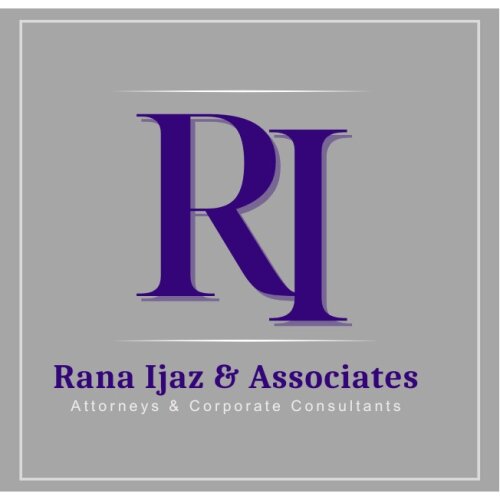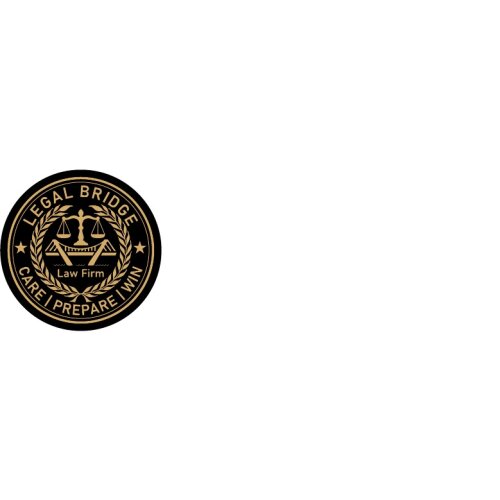Best Commercial Real Estate Lawyers in Pakistan
Share your needs with us, get contacted by law firms.
Free. Takes 2 min.
Free Guide to Hiring a Real Estate Lawyer
Or refine your search by selecting a city:
List of the best lawyers in Pakistan
About Commercial Real Estate Law in Pakistan
Commercial Real Estate in Pakistan has been undergoing significant growth, with an increase in demand for office spaces, retail outlets, industrial facilities, and mixed-use developments. The commercial real estate sector is influenced by various factors including economic conditions, urbanization trends, and foreign investments. Legal aspects of commercial real estate cover transactions such as buying, selling, leasing, and developing property, alongside compliance with zoning laws, building regulations, and taxation matters. Understanding the legal framework is crucial for ensuring secure and profitable real estate operations.
Why You May Need a Lawyer
Navigating the complex landscape of commercial real estate can be challenging without expert guidance. Here are situations where legal assistance is vital:
- Contract Drafting and Review: Lawyers ensure that agreements such as leases and purchase contracts are legally sound and protect your interests.
- Due Diligence: Conducting thorough investigations into property titles, encumbrances, and zoning restrictions.
- Dispute Resolution: Addressing conflicts over property boundaries, lease terms, or construction agreements.
- Development Projects: Navigating regulatory requirements for new constructions or renovations.
- Investment Advice: Evaluating legal risks and returns associated with property investments.
Local Laws Overview
Commercial real estate laws in Pakistan are influenced by federal and provincial legislation. Key legal considerations include:
- Transfer of Property Act 1882: Governs the transfer of property rights in Pakistan.
- Registration Act 1908: Necessitates the registration of property transactions to establish legal title.
- Stamp Act 1899: Mandates stamp duty on property documents to authenticate transactions.
- Land Revenue Act 1967: Regulates land management, revenue collection, and disputes.
- Zoning Laws: Govern land use to ensure properties are utilized according to designated urban plans.
Frequently Asked Questions
What documents do I need for a commercial property transaction?
You typically require the sale deed, title deed, encumbrance certificate, property tax receipts, and a no-objection certificate if applicable.
How is commercial property different from residential property legally?
Commercial properties are subjected to different zoning laws, taxes, and building regulations compared to residential properties.
What is the role of a real estate lawyer in property development?
A lawyer assists with obtaining necessary permits, ensures compliance with local laws, drafts contracts, and mitigates legal risks.
How can I resolve a dispute with a tenant or landlord?
Dispute resolution can involve negotiation, mediation, arbitration, or litigation. A legal professional can advise on the best course of action.
Are there any restrictions on foreign entities owning commercial real estate in Pakistan?
Yes, foreign ownership is subject to government approval and certain restrictions to ensure compliance with national interests.
What taxes apply to commercial real estate transactions?
Taxes may include capital gains tax, stamp duty, and property tax, each varying by region and transaction type.
How are lease agreements regulated in Pakistan?
Lease agreements must comply with the Transfer of Property Act and should clearly state terms and conditions, notice periods, and rent details.
Can zoning laws affect my ability to use commercial property?
Yes, zoning laws dictate how land can be used and can impact construction activities, business operations, and property modifications.
What is a due diligence process in real estate?
It involves verifying legal ownership, analyzing property records, checking for liens, and ensuring regulatory compliance.
How do I ensure my commercial property is legally compliant?
Engage with a legal expert to review permits, validate regulatory compliance, and maintain updated documentation.
Additional Resources
For further assistance, consider utilizing the following resources:
- Pakistan Bar Council: Offers directories of registered lawyers and legal professionals.
- Local Development Authorities: Provide guidelines and regulations related to property development.
- Real Estate Regulatory Authorities: Offer support and information on compliance and standards.
Next Steps
If you need legal assistance in commercial real estate, begin by consulting a reputable real estate lawyer with experience in Pakistani law. Gather all related documents and records to facilitate a comprehensive legal review. Consider reaching out to local real estate associations for referrals and additional guidance. Finally, proactively engage with government agencies and regulatory bodies to ensure compliance and safeguard your investments.
Lawzana helps you find the best lawyers and law firms in Pakistan through a curated and pre-screened list of qualified legal professionals. Our platform offers rankings and detailed profiles of attorneys and law firms, allowing you to compare based on practice areas, including Commercial Real Estate, experience, and client feedback.
Each profile includes a description of the firm's areas of practice, client reviews, team members and partners, year of establishment, spoken languages, office locations, contact information, social media presence, and any published articles or resources. Most firms on our platform speak English and are experienced in both local and international legal matters.
Get a quote from top-rated law firms in Pakistan — quickly, securely, and without unnecessary hassle.
Disclaimer:
The information provided on this page is for general informational purposes only and does not constitute legal advice. While we strive to ensure the accuracy and relevance of the content, legal information may change over time, and interpretations of the law can vary. You should always consult with a qualified legal professional for advice specific to your situation.
We disclaim all liability for actions taken or not taken based on the content of this page. If you believe any information is incorrect or outdated, please contact us, and we will review and update it where appropriate.
Browse commercial real estate law firms by city in Pakistan
Refine your search by selecting a city.

















